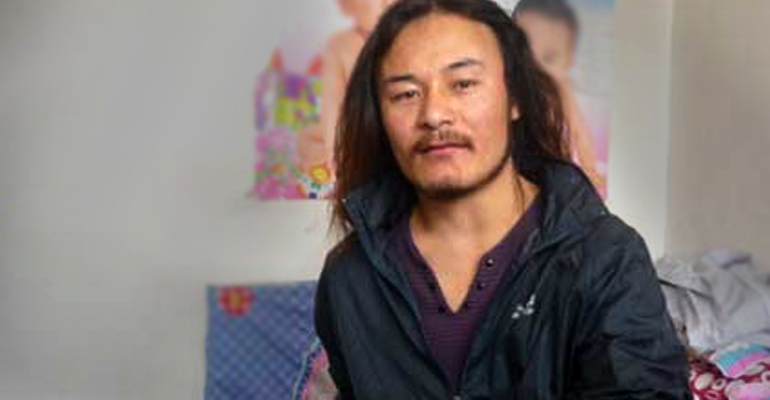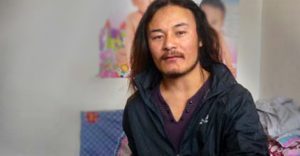| [29 February 2016] China’s continued crackdown on any form of dissent in Tibet has been further exemplified by the imprisonment of popular Tibetan blogger Druklo (pen-name Shokjang). The 32 year-old writer and blogger was sentenced to three years’ imprisonment on 17 February. It is believed he was charged with “inciting separatism” after writing articles critical of Chinese government policies in Tibet.
Take Action | Background | Examples of Shokjang’s writings | Take Action 1. Sign the international petition 2. Write directly to the Chinese authorities ► to immediately release Druklo (pen-name Shokjang) as he was arrested for peacefully expressing his views, a right which is guaranteed under the Universal Declaration of Human Rights; ► to ensure Druklo is not ill-treated or subjected to torture whilst in prison; ► to allow Druklo regular visits by his family and has access to a lawyer of his own choosing; ► to respect the fundamental right of Tibetans and all citizens to freedom of expression, including those who peacefully express criticism of the government or views that are contrary to state policies. Chinese Ambassador to the UK Outside the UK: check the Chinese government’s webpage listing embassies for contact details of your nearest ambassador and embassy. Head of Tongren County PSB Secretary of Tongren County Party Committee If you receive a reply to your email or letter, please send a copy to Tibet Society, as this helps us to monitor the situation. Click here for Tibet Society contact details. Background
On 17 February 2016, after almost a year’s detention, the People’s Intermediate Court in Rebkong sentenced Shokjang to three years’ imprisonment. According to exiled sources, Shokjang was charged with “inciting separatism” for writing articles critical of Chinese policies in Tibet as well as for organising protests and making contact with foreign organisations. Sources also say that Shokjang denied the charges and has vowed to appeal.
Former political prisoner, Golog Jigme, who recently gave testimony at the UK Parliament, said, “We believe that Druklo challenged the court ruling, saying that he had not done anything against the Chinese Constitution or against Chinese laws and regulations. Like so many Tibetan political prisoners, he has been sentenced on baseless charges due to the Chinese Communist Party authorities exerting their power.” Since the Tibetan uprising of 2008, the Chinese government has sought to eradicate all forms of dissent. This has included peaceful expressions of nationalism in the form of essays, poetry and songs, displays of Tibetan culture and even non-state sanctioned teaching of the Tibetan language. Further reading: Phayul | RFA | ICT Examples of Shokjang’s writing “Tibetans do not wish or aspire to create conflict and violence among nationalities in China; they solely aspire for an autonomous Tibetan nationality within China. I would hazard that the same applies to Uyghurs too. So, the strategy of annihilating the rights of nationalities is a seriously harmful and a thoughtless scheme. On the contrary, with the current model of autonomous nationalities as a basis, if a federal system of autonomous administration of provinces based on the principles of liberty and equality is established, which I think is feasible, internal conflicts between ethnic groups would simply subside and disappear.” 2. Just days prior to his detention in March 2015, Shokjung wrote the following verse entitled “316” (i.e. 16th March): 316 |
||||
|
|
||||
|
Tibet Society, the world’s first Tibet support group, was founded in 1959. Funded by its members, it has been working for over 50 years to seek justice for Tibet through parliamentary lobbying, campaigns and actions. Help keep Tibet alive by joining Tibet Society today. Annual membership £24; Family £36; Life £500.
|
||||





